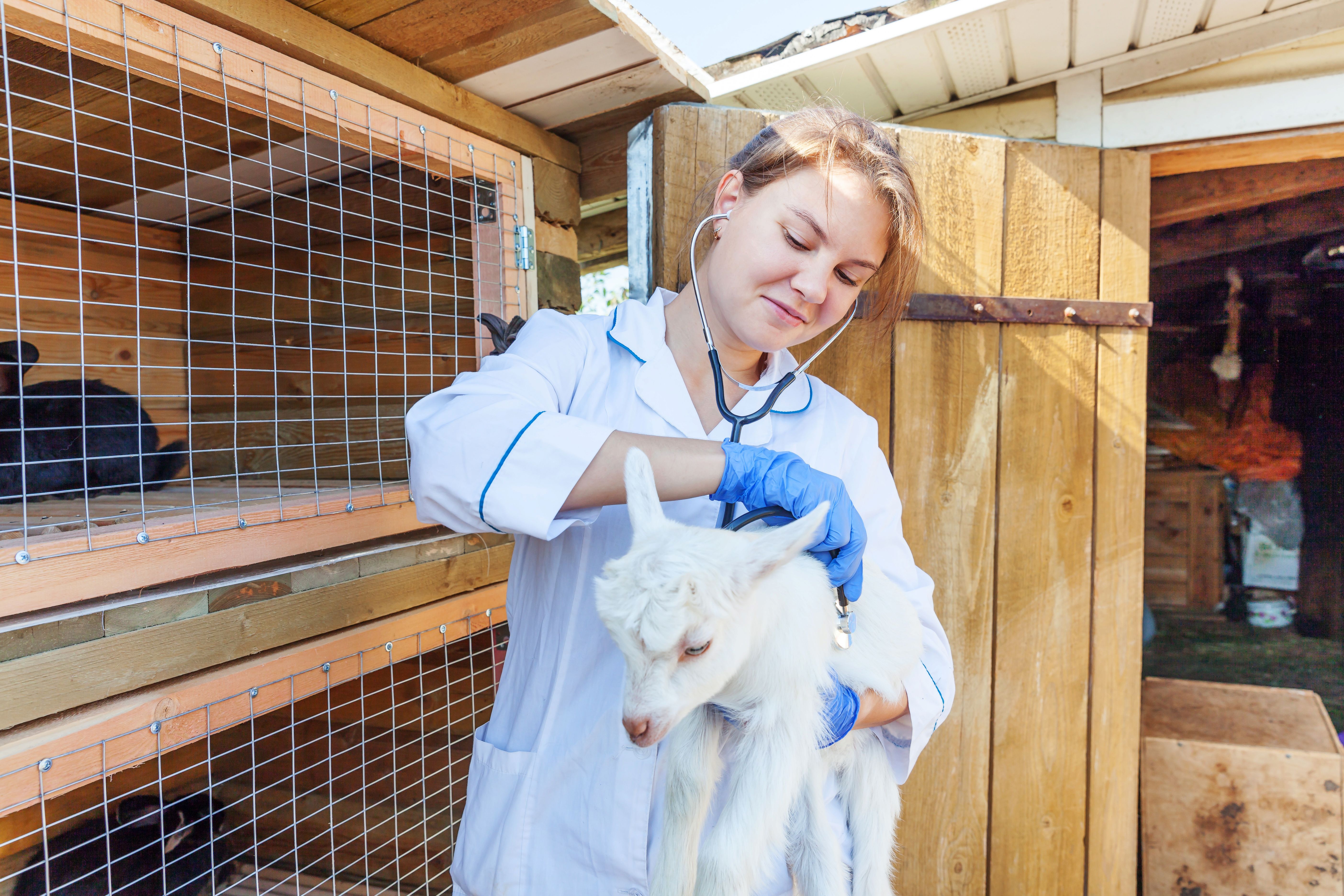US Senate bill aimed at increasing access to veterinary care
The Rural Veterinary Workforce Act is a bipartisan effort that was brought to the House of Representatives earlier this year
Photo: Yulia Zavalishina/Adobe Stock

A US Senate bill that addresses a national shortage of veterinarians has been introduced in Washington, DC, by bipartisan and independent legislators. The Rural Veterinary Workforce Act proposes tax benefits to veterinarians who practice in rural communities in an effort to increase access to care, and address concerns about food safety and public health in those areas.1
Introduced by Senators Mike Crapo (R-Idaho) and Debbie Stabenow (D-Michigan) on September 18, 2023, the bill would provide an exemption from the federal withholding tax for payments received under the existing Veterinary Medicine Loan Repayment Program (VMLRP); as well as similar state programs, according to a release from Crapo’s office. “Veterinarians in rural areas are crucial in maintaining animal health and welfare, and ensuring ranchers and farmers have access to care for their livestock.By addressing the overly burdensome taxes on the Veterinary Medicine Loan Repayment Program, we can improve access to rural veterinary care while strengthening local economies and protecting the safety of our national food supply,” said Crapo, in the release.1
Stabenow also expressed how the Rural Veterinary Workforce Act would better support the veterinary community in underserved areas nationwide “Quality veterinary care is essential to the agricultural economy and public health in rural communities in Michigan and across the country,” she said, in the release.1 “But too many communities lack the veterinary services they need. This bipartisan bill will provide incentives to veterinarians to practice in underserved areas, where quality veterinary care is needed to ensure healthy livestock and a safe food supply.”
The VMLRP provides reimbursement for student loans for veterinarians who practice for 3 years in a federally designated area that is experiencing a shortage of veterinary care. Although a similar program for human health care medical doctors and other practitioners provides tax exemption for repayment of student loans, no such exemption currently exists for veterinarians enrolled in VMLRP. The Rural Veterinary Workforce Act addresses the disparity.2
The bill is receiving support from more than 100 national and state-level professional association and organizations, including the American Veterinary Medical Association (AVMA). In a joint statement, these stakeholders encouraged Congress to pass the legislation into law to help increase access to veterinary care for livestock and poultry, which includes beef cattle, dairy cattle, swine, chickens, turkeys, meat goats, dairy goats, sheep, llamas, alpacas, aquaculture, farmed deer and elk. “Passage of the bill will also help each state address its needs for public practice veterinarians (food safety, public health, epidemiology, pathology, molecular diagnostics, virology, toxicology, immunology, bacteriology, serology, foreign animal disease preparedness, and livestock infectious diseases),” the statement read.3
Additionally, the AVMA released its own statement in support of the proposed legislation. “Increasing veterinary services in high-priority rural areas through the Rural Veterinary Workforce Act would help keep the nation’s livestock healthy and our food supply safe and secure, and protect public health,” said Rena Carlson, DVM, president of the AVMA, in the association's release. “We look forward to working with the congressional champions to enact this bill and help rural communities across the country access the many essential services veterinarians provide.”4
Companion legislation was introduced in the US House of Representatives June 23, 2023, by Reps. Adrian Smith (R-NE), John Larson (D-CT), Michelle Fischbach (R-MN), and Jimmy Panetta (D-CA).2 Joining Crapo and Stabenow in co-sponsoring the Senate bill are Senators John Boozman (R-Arkansas), Susan Collins (R-Maine), Dianne Feinstein (D-California), Kristen Gillibrand (D-New York), Cindy Hyde-Smith (R- Mississippi), Angus King (I-Maine), Amy Klobuchar (D-Minnesota), Jerry Moran (R-Kansas), Lisa Murkowski (R-Alaska), Patty Murray (D-Washington), Jim Risch (R-Idaho) and Tina Smith (D-Minnesota).1
References
- Crapo, Stabenow lead bipartisan bill to help address shortage of veterinarians in rural America. News release. Mike Crapo, US Senator for Idaho. September 18, 2023. Accessed September 19, 2023. https://www.crapo.senate.gov/media/newsreleases/crapo-stabenow-lead-bipartisan-bill-to-help-address-shortage-of-veterinarians-in-rural-america
- Smith, Larson, Fischbach and Panetta introduce bill to expand access to veterinarians in rural areas. News release. Rep. Adrian Smith (R-NE). June 23, 2023. Accessed September 19, 2023. https://adriansmith.house.gov/media/press-releases/smith-larson-fischbach-and-panetta-introduce-bill-expand-access-veterinarians
- Rural Veterinary Workforce Act statement of support (118th Congress). US Senate Committee on Agriculture, Nutrition and Forestry. Accessed September 19, 2023. https://www.agriculture.senate.gov/imo/media/doc/rural_veterinary_workforce_act_support_letter_2023.pdf
- AVMA reignites congressional efforts to address highest level of rural veterinary shortages. News release. American Veterinary Medical Association. September 19, 2023. Accessed September 19, 2023. https://www.avma.org/news/press-releases/avma-reignites-congressional-efforts-address-highest-level-rural-veterinary
